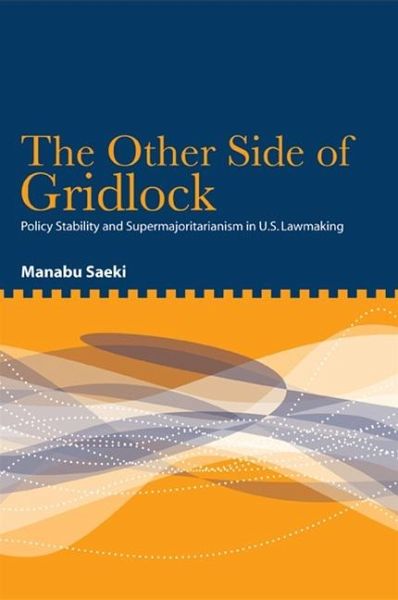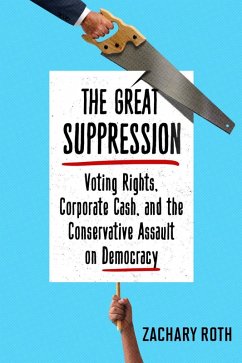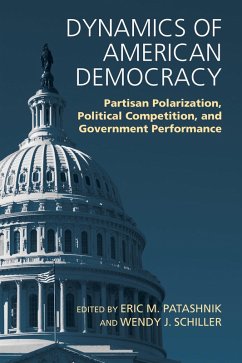
The Other Side of Gridlock (eBook, ePUB)
Policy Stability and Supermajoritarianism in U.S. Lawmaking

PAYBACK Punkte
13 °P sammeln!
A detailed study of political gridlock in Congress, offering an alternative perspective for evaluating its persistence and charting a course for change.Drawing upon a wealth of congressional data from 1953 through 2006, this study offers new insights into the politics of gridlock, one of the more contentious issues in Washington, D.C., since the early 1990s. Previous analyses have focused on either the volume of enacted law or the ratio of enacted legislation to the entire legislative agenda. Manabu Saeki departs substantially from these approaches by looking at the policy content of enacted l...
A detailed study of political gridlock in Congress, offering an alternative perspective for evaluating its persistence and charting a course for change.
Drawing upon a wealth of congressional data from 1953 through 2006, this study offers new insights into the politics of gridlock, one of the more contentious issues in Washington, D.C., since the early 1990s. Previous analyses have focused on either the volume of enacted law or the ratio of enacted legislation to the entire legislative agenda. Manabu Saeki departs substantially from these approaches by looking at the policy content of enacted laws while defining gridlock as an inability to change policy. He asks, why has there been so much policy stability? Saeki looks closely at party control, as do previous studies, but he also examines the ideological configuration of the bipartisan "supermajority."
Drawing upon a wealth of congressional data from 1953 through 2006, this study offers new insights into the politics of gridlock, one of the more contentious issues in Washington, D.C., since the early 1990s. Previous analyses have focused on either the volume of enacted law or the ratio of enacted legislation to the entire legislative agenda. Manabu Saeki departs substantially from these approaches by looking at the policy content of enacted laws while defining gridlock as an inability to change policy. He asks, why has there been so much policy stability? Saeki looks closely at party control, as do previous studies, but he also examines the ideological configuration of the bipartisan "supermajority."
Dieser Download kann aus rechtlichen Gründen nur mit Rechnungsadresse in A, D ausgeliefert werden.













